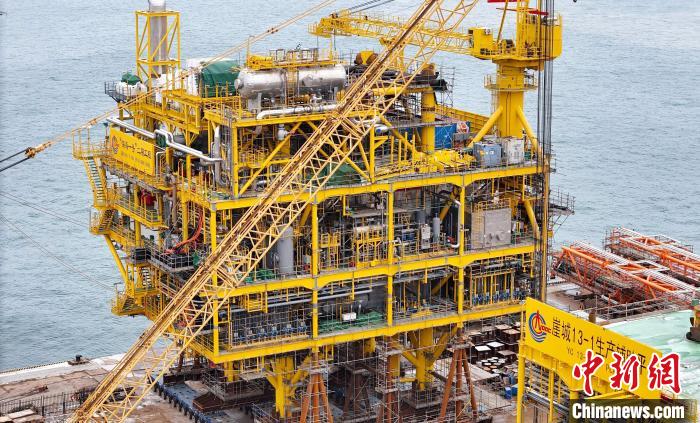Going to great depths to know seamounts better


When the specially designed vessel Shenhai Yihao (DeepSea No 1) carrying China's deep-sea manned submersible Jiaolong set off from Qingdao, a port city in East China's Shandong province, on Saturday on a deep-sea exploration mission, it set a precedent, as it was carrying foreign scientists from Australia, Colombia, Mexico, Nigeria, Singapore and Bangladesh on board as part of an international cooperation plan.
Part of the China-led Digital Deep-sea Typical Habitats Program, or Digital DEPTH, the vessel is headed for the Magellan Seamounts in the western Pacific, which is considered a typical fragile deep-sea ecosystem because of its varied biodiversity and unique ecosystem.
During the 45-day trip, the Jiaolong is scheduled to dive 18 times to collect deep-sea organisms, seawater and sediments, in order to deepen understanding of the unique ecosystem and environment of the seamounts for its better protection.
This kind of trip, with foreign scientists aboard a Chinese submersible, would have been unimaginable just decades ago. In August 2005, when China and the US launched their first joint deep-sea scientific exploration trip, Chinese experts were dependent on their US colleagues to learn how the deep-ocean research submersible Alvin worked. It was not until 2009 that China successfully manufactured the Jiaolong, becoming the fifth nation to master deep-sea submersible technologies.
China has since built its first deep-sea exploration base in Qingdao, commissioned two more manned deep-sea submersibles, namely Shenhai Yongshi (Deep-Sea Warrior) and Fendouzhe (Striver). The three submersibles have together undertaken over 1,100 diving missions so far. In the past three years they have undertaken over 50 percent of the world's total number of manned deep-sea expeditions, Ye Cong, a senior researcher with China Shipbuilding Industry Group Co. Ltd, said at this year's annual session of the National Committee of the Chinese People's Political Consultative Conference.
That the Chinese deep-sea submersible is carrying international scientists, thanks to international cooperation after 19 years, is a best sign of China leading the world in this sector.
It's only with ample capabilities that China could take the lead in international cooperation. As the only major scientific plan approved by the United Nations within its Decade of Ocean Science for Sustainable Development (2021-2030) program, Digital DEPTH will enrich mankind's knowledge about seamounts with China's contributions.
































